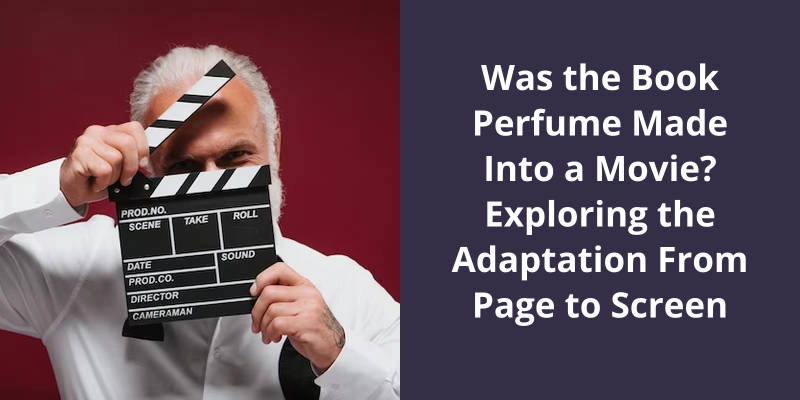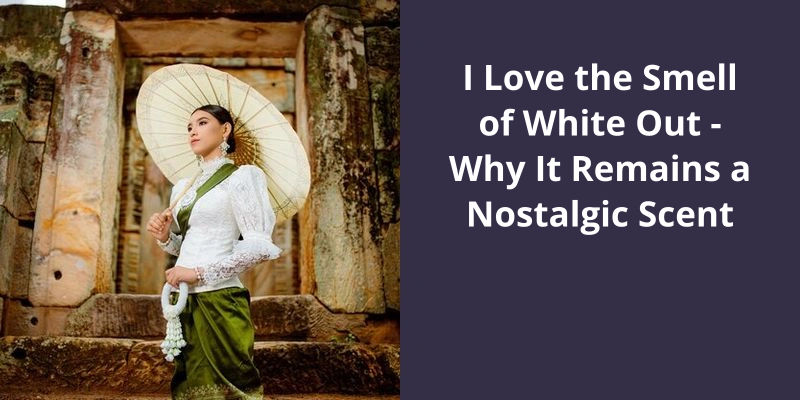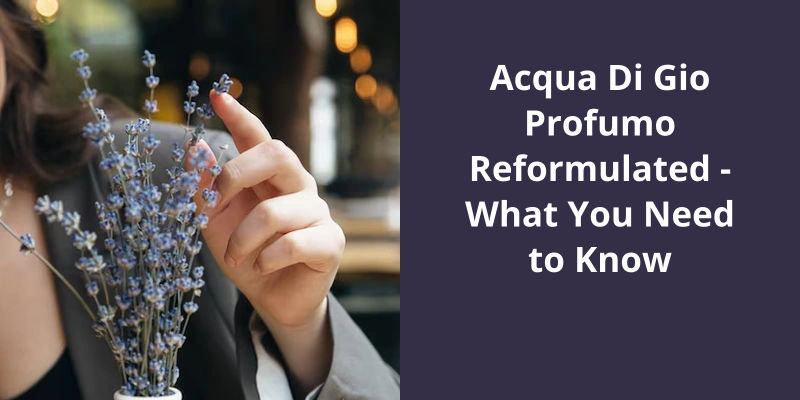Yes, the book “Perfume” was indeed made into a movie. The novel, written by Patrick Suskind, was adapted into a film titled “Perfume: The Story of a Murderer” in 2006. It’s a German period psychological crime thriller film directed by Tom Tykwer. The movie like the book revolves around Jean-Baptiste Grenouille, an olfactory genius, and his homicidal quest for the perfect scent. The film attempted to capture the essence of the book, using narrative and visual techniques to portray the novel’s intricate details.

Is Perfume Movie Based on a Book?
Perfume: The Story of a Murderer is a captivating tale that’s enthralled readers since it’s publication in 198Selling over 20 million copies worldwide, it’s become a literary phenomenon. Many people wonder if this haunting story was ever adapted into a movie, and the answer is yes. The mesmerizing narrative was indeed brought to life on the silver screen.
The author, Patrick Süskind, had a particular vision for the adaptation of his novel. He held firm in his belief that only the likes of Stanley Kubrick and Miloš Forman could adequately capture the essence of his book on film. Süskind rejected numerous offers from various filmmakers, determined to wait for the right directorial talent to come along.
After years of anticipation, the novel finally found it’s cinematic match in the form of German director Tom Tykwer. Overcoming the challenge of bringing a story centered around scent to life visually, Tykwer used his unique filmmaking style to craft a visually stunning adaptation. The result was a stunning sensory experience that transported audiences into the world of the story.
The adaptation stayed faithful to Süskinds original work, capturing the dark and atmospheric elements that made the book so intriguing. The films success helped solidify Perfumes place in the canon of both literature and cinema.
While Süskind initially had reservations about handing over his beloved work to filmmakers, the movie adaptation proved to be a powerful medium for reaching a broader audience. It allowed the story to be experienced and appreciated by those who may not have come across the novel. The films success not only brought Süskinds vision to life but also introduced his captivating story to a whole new generation of enthralled viewers.
The novel “Perfume” by Patrick Süskind is a unique and immersive reading experience, starting as a historical piece and eventually delving into metaphysical mysteries. It’s focus on the sense of smell adds a compelling sensory dimension to the narrative, making it an honorary present tense despite being set in the past.
Is Perfume a Good Read?
Perfume is indeed a captivating read that seamlessly combines elements of history, mystery, and the human senses. The novel opens as a historical document, presenting a vivid portrayal of eighteenth-century France. The descriptions of the bustling streets and the social customs of the time immerse readers in a different era, providing a rich backdrop for the story.
However, Perfume is much more than just a historical novel. It delves into the world of scent, allowing readers to experience the powerful impact it can have on our lives. The protagonist, Jean-Baptiste Grenouille, possesses an extraordinary sense of smell, and as the narrative progresses, readers are invited to explore the intricacies of various scents alongside him.
The books exploration of scent not only brings an added layer of sensory immersion but also serves as a catalyst for a metaphysical mystery. It delves into profound questions surrounding the nature of identity, desire, and the boundaries between life and death.
The author, Patrick Süskind, masterfully weaves together historical elements, sensory experiences, and philosophical musings, creating a truly unique reading experience.
It’s blend of historical fiction, sensual exploration, and metaphysical inquiry makes it a compelling and unforgettable journey.
In the creepy and captivating world of “Perfume”, viewers are taken on a chilling journey as a monstrous killer terrorizes a small German town. Inspired by the renowned novel, the series delves deep into the dark corners of human nature and raises thought-provoking questions about the power of scent and it’s influence on our emotions and desires. As the story unravels, the true extent of our vulnerability to manipulation by our own olfactory senses becomes a haunting theme, challenging the boundaries of love and morality.
What Is the Story of the Perfume Series?
The story of the Perfume series is inspired by Patrick Süskinds international bestseller “Perfume. The Story of a Murderer”. This six-part thriller series delves into the dark and twisted mind of a monstrous killer. Set in modern-day Germany, the narrative revolves around the exploration of a deeply unsettling question: Are humans capable of experiencing true love, or are we merely puppets manipulated by our own sense of smell?
The series follows the life of a young man named Jean-Baptiste Grenouille, who possesses an extraordinary sense of smell. As a child, Grenouille grows up in the stench-ridden streets of Paris, where he becomes fascinated with capturing scents and creating the most exquisite perfumes. However, his obsession takes a dark turn when he realizes that in order to preserve the purest scent of all, he must murder young women and isolate their scent.
Throughout the series, Grenouille embarks on a chilling killing spree, leaving a trail of victims behind him. As the police investigate these harrowing crimes, they become entangled in a web of mystery and horror. Meanwhile, a group of ambitious perfume experts and an art student named Elena are determined to unravel Grenouilles confused psyche and decipher the motives behind his gruesome acts.
While exploring the depths of Grenouilles twisted mind, “Perfume” also delves into the philosophical and psychological implications of our sense of smell. The series poses thought-provoking questions about the true nature of love and human connection — subjects that remain shrouded in an enigmatic cloud throughout the narrative. Are we truly governed by our olfactory desires, or is there something deeper that binds us?
As the story progresses, the tension builds, and viewers are left to grapple with their own moral compass. Complex characters, haunting visuals, and a gripping storyline make “Perfume” a captivating exploration of the human psyche and it’s dark underbelly. This adaptation from page to screen successfully captures the essence of Süskinds original work, captivating audiences with it’s unique blend of mystery, horror, and philosophical depth.
The Psychological Effects of Scent: Discuss the Ways in Which Scents Can Impact Our Emotions, Memory, and Behavior, and How This Is Explored in the Perfume Series.
The Perfume series, based on the book “Perfume: The Story of a Murderer” by Patrick Süskind, delves into the psychological effects of scent and how it can influence our emotions, memory, and behavior. The story follows a protagonist with an extraordinary sense of smell, who becomes obsessed with capturing the essence of human scent. As he delves into his olfactory experiments, the narrative explores the power of scent to evoke strong emotions, trigger memories, and even manipulate behavior. The series beautifully depicts the intricate relationship between scent and the human psyche, offering a mesmerizing exploration of this fascinating connection.
Source: Perfume (2018 TV series)
The story behind the movie “Perfume” is an intriguing one. Set in 18th-century France, the film follows the journey of Jean-Baptiste Grenouille, a gifted perfumer with a sinister desire for the ultimate fragrance. The talented producer Eichinger acquired the film rights to Patrick Süskind’s novel in 2000 and collaborated with Birkin to bring the screenplay to life.
What Is the Story Behind the Movie Perfume?
What’s the story behind the movie Perfume? Set in 18th-century France, the film explores the dark and twisted journey of Jean-Baptiste Grenouille, a young man with an extraordinary sense of smell. Born with an unparalleled olfactory genius, Grenouille becomes obsessed with capturing and preserving scents, driven by his belief that the perfect scent can give him power over others.
The film adaptation of Perfume emerged from the collaboration between producer Bernd Eichinger and screenwriter Andrew Birkin. Eichinger acquired the film rights to Patrick Süskinds novel in 2000 and, together with Birkin, began the arduous process of adapting the complex and multi-layered story for the big screen.
Perfume takes viewers on a haunting and sometimes grotesque journey, as Grenouilles quest for the perfect scent spirals into madness. He becomes a serial killer, extracting the scents of his victims to create his mesmerizing perfumes. The film delves into the depths of Grenouilles disturbed psyche, adding an element of psychological horror to the narrative.
Renowned German director Tom Tykwer was chosen to bring this dark tale to life. Tykwers unique vision and visual storytelling skills perfectly complemented the eerie and atmospheric world of Perfume. His direction, combined with stunning cinematography and a haunting soundtrack, allowed the audience to immerse themselves in Grenouilles twisted and captivating universe.
The movie Perfume created a stir upon it’s release in 200It received both critical acclaim and divided opinions from audiences due to it’s disturbing subject matter and graphic scenes. Nevertheless, the film succeeded in capturing the essence of Süskinds novel and bringing it to the screen in a visually striking and emotionally charged manner. With it’s exploration of obsession, power, and the duality of human nature, Perfume remains a thought-provoking and unforgettable cinematic experience.
The Process of Adapting the Complex and Multi-Layered Story of Perfume From Book to Film
The process of adapting the complex and multi-layered story of “Perfume” from book to film was a challenging task. The book, written by Patrick Süskind, delves into the dark and disturbing world of a perfume apprentice with an exceptional sense of smell. Translating the intricate narrative and vivid descriptions onto the screen required careful consideration to capture the essence of the story.
The filmmakers faced the daunting task of condensing the detailed plotlines, atmospheric settings, and unique character development into a visually compelling format. Additionally, the book’s exploration of scent as a central theme presented a unique challenge in conveying olfactory experiences on screen.
To adapt “Perfume” into a movie, the filmmakers made strategic choices to streamline the story and enhance certain elements. They emphasized visual spectacle, utilizing stunning cinematography and production design to transport viewers into the world of scent. The film also incorporated a haunting score to evoke the sensory experience described in the book.
While the movie received mixed reviews, it successfully captured the essence of Süskind’s intricate storytelling and showcased the visual and auditory elements that made the book so captivating. Despite the inherent difficulties in adapting any literary work into a different medium, the film adaptation of “Perfume” brings to life the intriguing world and complex themes of the original story.
Conclusion
In conclusion, it’s evident that the book Perfume by Patrick Süskind was indeed made into a movie, titled Perfume: The Story of a Murderer. Directed by Tom Tykwer, the film brought to life the haunting and complex narrative of the novel. With a talented cast including Ben Whishaw, Alan Rickman, Rachel Hurd-Wood, and Dustin Hoffman, the movie captivated audiences with it’s atmospheric depiction of the story's psychological nuances. By exploring the adaptation from page to screen, it becomes apparent that the filmmakers successfully translated the dark and mysterious world of Perfume into a visually stunning and haunting cinematic experience.





